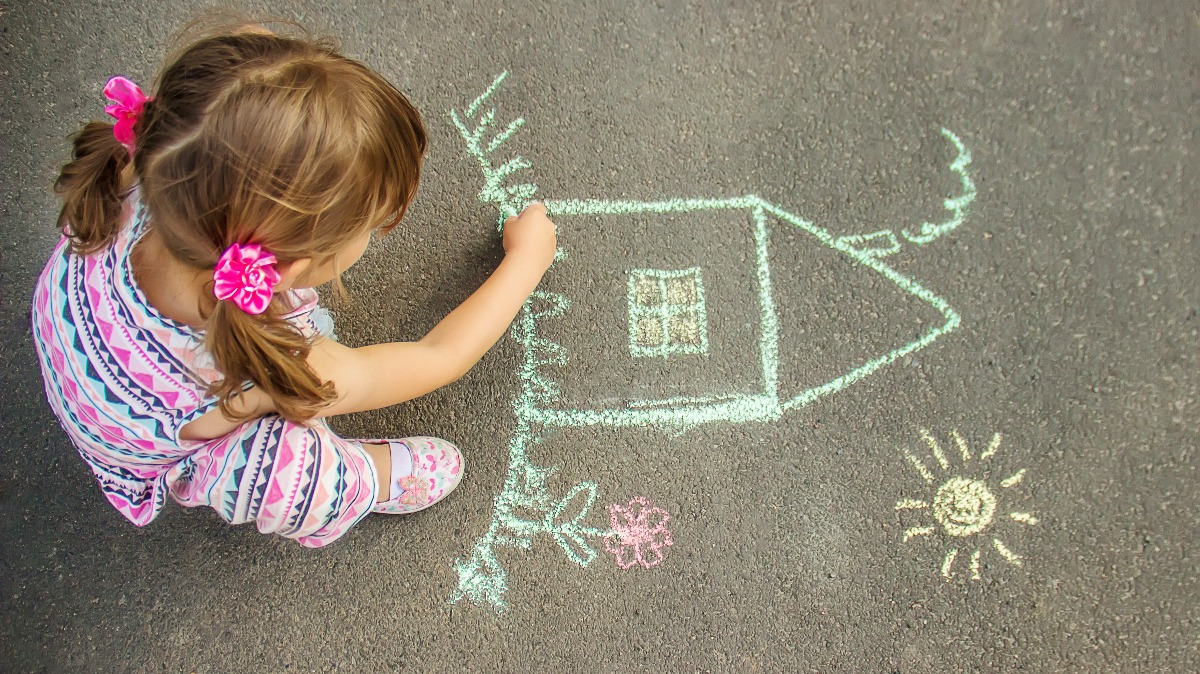
Everybody wants what’s best for their children. You probably feel the same when you start thinking about the future you want for your children. You want them to grow up smart, happy, healthy, and of course, a little creative to bring in some magic into their lives. Many believe that being artistic or creative are innate qualities, it’s either one is born with the genes or not. However, that’s a complete fallacy. Creativity is part talent and part skill, which means that you can cultivate your child’s artistic side if you choose to put in the effort. If you could use a little help in that department, you need to read below. Here are 6 handy tips that will help your child become more artistic and creative.
1. Give Them Space
This might sound like generic advice; however, the space in question is what they need to express themselves without any inhibitions. Letting your child be who they want to be without enforcing your convictions and beliefs is not easy given that you’re the one doing the parenting. Without even intending to, like most parents, you pass on to your child what you’ve been taught using the same probably now outdated ways and methods. However, removing yourself from the equation and customize your parenting style to every one of your children while remaining equally fair does require creativity on your side, but it is key to raise children who don’t shy away from expressing themselves freely. The best way to learn how to give your children space is to start small. Let your child pick their outfits and decide what and when to eat. Of course, you still have to step in when your child decides they want an ice cream sundae for dinner. But, even then, don’t resort to the ‘end of discussion’ conclusion; if they’re old enough, teach them to see what’s best for them, so they can reach the right decision on their own.
2. Praise Their Art
Even if your child’s interpretation of you looks more like a Rorschach card, give them praise and congratulate them on a job well done. Talk about their use of colors and how you’re particularly impressed by their smooth drawing lines. Whatever it is, always support your child’s artistic endeavors and encourage them to keep going because it’s the only way they can ever get better. Make it a point to put their art on display, whether on the fridge in the kitchen or on one of the walls in the family room and let them hear you praise their work in front of the whole family.
3. Develop their Skill
Having already agreed that creativity and art are part skill and part talent, commit to developing your child’s skills. Nowadays, there are many art programs specifically targeted toward young children that will help them enhance their skills to grow into more proficient artists. Guides and tutorials at Cecelyv.com make for a great addition to your child’s art educational resources. Following advice from Texas-based artist Cecely Valderrama, she breaks down the basics of art into small digestible information that will help your child notably improve in all aspects of art and creativity. The important thing is to track your child’s progress and build up on their skills to keep them engaged.
4. Stimulate their Sense of Vision
If you want your child to become artistic, show them art. Take them to museums, exhibitions, on road trips to keep them inspired and activate their artistic sense. You can’t expect your child to become creative and artistic if they spend most of their time indoors staring at walls be it at home or even at the mall. Open their eyes to new views and take them on different adventures, and you’ll see for yourself that it will pay off.
5. Share their Creative Time
If your child likes to sit in their room and draw, grab a chair and sit next to them and do some drawing yourself. Children have this innate need to seek their parent’s approval of who they are and the things they do. When your child sees for themselves that you also like to draw and make time for your ‘art’ they’ll be more likely to keep at it and consequently improve.
6. Keep it Fun
Art and creativity should be fun. No matter how serious the art project your child is working on for their national competition, always remind them to have fun and enjoy the process. While discipline is needed and can be useful at times; if taken too far, it can suppress your child’s creativity and stifle their growth. Help your child find a good balance between fun and discipline to ensure they move in the right direction.
From a very young age, everything you do and say will have a long-term impact on how your child grows up. If you want to raise an artistic, free-spirited child, use the above tips to guide you throughout the way and let them open your eyes to new ways of doing things. But remember, not all children are the same, find what works for the both of you and take it from there.




